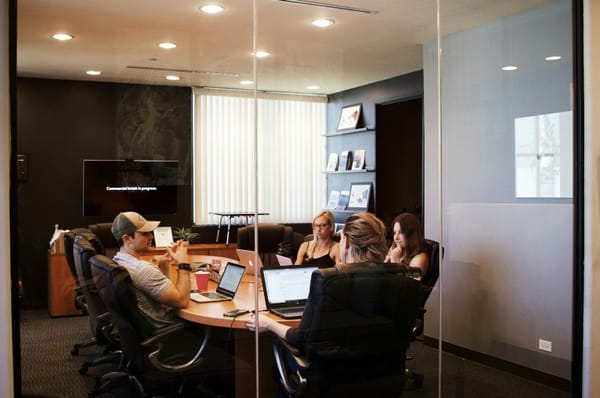The U.S. Green Building Council has announced the recipients of the 2024 LEED Homes Awards, recognizing outstanding achievements in sustainable residential construction and highlighting the growing importance of environmentally conscious building practices in the housing industry.
Overview of LEED Certification
LEED (Leadership in Energy and Environmental Design) is a globally recognized green building certification system developed by the U.S. Green Building Council (USGBC). It provides a framework for healthy, highly efficient, and cost-saving green buildings, promoting sustainable design and construction practices across various building types, including homes.
The LEED certification process evaluates projects based on several key areas:
- Energy efficiency and atmosphere
- Water efficiency
- Materials and resources
- Indoor environmental quality
- Location and transportation
- Sustainable sites
- Innovation in design
Projects earn points across these categories, with the total score determining the level of LEED certification achieved: Certified (40-49 points), Silver (50-59 points), Gold (60-79 points), or Platinum (80+ points).
For residential projects, LEED for Homes certification addresses the unique characteristics of single-family and multifamily homes. It considers factors such as:
- Site selection and development
- Energy-efficient building envelopes and systems
- Water conservation measures
- Use of environmentally preferable materials
- Indoor air quality management
- Homeowner education
The certification process involves third-party verification to ensure that the home meets the rigorous standards set by USGBC. This includes on-site inspections and performance testing to validate the implementation of green building strategies.
LEED certification offers numerous benefits to homeowners, including reduced energy and water consumption, lower operating costs, improved indoor air quality, and potentially higher resale value. For developers and builders, LEED certification demonstrates a commitment to sustainability and can provide a competitive edge in the market.
The LEED Homes Awards, such as those announced for 2024, recognize outstanding achievements in sustainable residential construction, further incentivizing the adoption of green building practices across the industry. These awards showcase innovative projects that push the boundaries of sustainable design and construction, serving as inspiration and setting new benchmarks for the residential sector.
2024 LEED Homes Awards
The 2024 LEED Homes Awards, presented by the U.S. Green Building Council (USGBC), celebrate outstanding achievements in sustainable residential construction across various categories. These awards recognize projects that demonstrate exceptional commitment to green building practices and innovative design solutions.
The "Project of the Year" award for 2024 was bestowed upon Sendero Verde Phase 1, a mixed-use development in East Harlem, New York City. This project, developed by Jonathan Rose Companies, L+M Development Partners, and Acacia Network, showcases a remarkable blend of sustainability, affordability, and community-focused design. Sendero Verde Phase 1 achieved LEED Platinum certification, the highest level possible, highlighting its exceptional performance in energy efficiency, water conservation, and overall environmental impact.
Other notable award recipients in various categories include:
- Outstanding Single-Family Project: The Regeneration House in Kansas City, Missouri, developed by DRAW Architecture + Urban Design
- Outstanding Multi-Family Project: Edwina Benner Plaza in Sunnyvale, California, developed by MidPen Housing
- Outstanding Affordable Project: Arroyo Village in Denver, Colorado, developed by Rocky Mountain Communities and The Delores Project
- Outstanding Developer: Jonathan Rose Companies, recognized for their consistent commitment to sustainable development across multiple projects
These award-winning projects demonstrate innovative approaches to sustainable design and construction. For example, the Regeneration House in Kansas City incorporates advanced energy-efficient systems, on-site renewable energy generation, and water conservation measures. Edwina Benner Plaza in Sunnyvale showcases how affordable housing can be both environmentally responsible and socially beneficial, providing high-quality, sustainable homes for low-income residents.
The 2024 LEED Homes Awards also highlight the growing trend of integrating sustainability with social equity and community development. Arroyo Village in Denver, for instance, combines affordable housing with supportive services for formerly homeless individuals, demonstrating how green building practices can be applied to address broader social challenges.
These award-winning projects serve as benchmarks for the industry, illustrating the potential for residential construction to significantly reduce environmental impact while enhancing quality of life for occupants. By recognizing these achievements, the USGBC encourages further innovation and adoption of sustainable practices in the residential sector, driving the industry towards a more environmentally responsible future.
Sources:
Benefits of LEED-Certified Homes
LEED-certified homes offer numerous benefits to homeowners, the environment, and the broader community. These advantages stem from the rigorous standards and innovative practices required to achieve LEED certification.
Energy Efficiency and Cost Savings: LEED-certified homes are designed to be highly energy-efficient, resulting in significant cost savings for homeowners. These homes typically use 20-30% less energy compared to conventional homes, leading to lower utility bills. Energy-efficient features may include high-performance windows, well-insulated building envelopes, and energy-efficient appliances and HVAC systems.
Improved Indoor Air Quality: LEED certification places a strong emphasis on indoor environmental quality. This focus results in homes with better ventilation systems, low-emitting materials, and improved air filtration. Consequently, LEED-certified homes often have healthier indoor environments, potentially reducing respiratory issues and allergies for occupants.
Water Conservation: LEED-certified homes incorporate water-saving fixtures and appliances, as well as efficient landscaping practices. This approach not only reduces water bills but also contributes to broader water conservation efforts, which is particularly crucial in water-stressed regions.
Durability and Reduced Maintenance: The use of high-quality, sustainable materials in LEED-certified homes often translates to increased durability and reduced maintenance needs over time. This can lead to long-term cost savings for homeowners and a reduced environmental impact due to less frequent replacements and repairs.
Higher Resale Value: LEED-certified homes often command higher resale values compared to conventional homes. The certification serves as a mark of quality and sustainability, which is increasingly valued by homebuyers. This can provide a significant return on investment for homeowners.
Environmental Impact: By reducing energy consumption, water usage, and waste generation, LEED-certified homes have a substantially lower environmental impact compared to conventional homes. This contributes to the reduction of greenhouse gas emissions and the conservation of natural resources.
Healthier Communities: On a broader scale, LEED-certified homes contribute to healthier, more sustainable communities. They often incorporate features that promote walkability, access to public transportation, and connection to local amenities, fostering a sense of community and reducing reliance on personal vehicles.
Innovation and Future-Proofing: LEED certification encourages the use of innovative technologies and design strategies. This approach not only results in more efficient homes today but also helps future-proof residences against evolving environmental regulations and rising energy costs.
Educational Value: Living in a LEED-certified home can increase awareness of sustainable practices among occupants. This educational aspect can lead to more environmentally conscious behaviors in other areas of life, amplifying the positive impact beyond the home itself.
Resilience: Many LEED-certified homes are designed with resilience in mind, incorporating features that help them withstand extreme weather events and adapt to changing climate conditions. This can provide peace of mind and potentially lower insurance costs for homeowners.
By offering these diverse benefits, LEED-certified homes not only provide advantages to individual homeowners but also contribute to broader sustainability goals and the development of more resilient, environmentally responsible communities.
Sources:
Impact of LEED Awards
The LEED Homes Awards have a significant impact on the green building industry, influencing trends, practices, and public perception of sustainable residential construction. These awards serve multiple purposes beyond simply recognizing outstanding projects:
Raising Awareness: The LEED Homes Awards play a crucial role in raising public awareness about sustainable building practices. By showcasing exemplary projects like Sendero Verde Phase 1 in East Harlem, which achieved LEED Platinum certification, the awards demonstrate that environmentally responsible construction is not only possible but also practical and beneficial.
Setting Industry Benchmarks: Award-winning projects serve as benchmarks for the residential construction industry. They set new standards for energy efficiency, water conservation, and innovative design solutions. For instance, the Regeneration House in Kansas City, recognized as the Outstanding Single-Family Project, likely incorporates cutting-edge sustainable technologies that other builders can aspire to implement.
Encouraging Innovation: The awards incentivize developers and architects to push the boundaries of sustainable design. This drive for innovation leads to the development of new technologies, materials, and construction methods that can be adopted more widely in the industry.
Promoting Best Practices: By highlighting successful projects across various categories, the LEED Homes Awards effectively disseminate best practices in sustainable construction. This knowledge sharing accelerates the adoption of green building techniques across the industry.
Driving Market Transformation: Recognition through these awards can provide a competitive advantage for developers and builders. As consumers become more environmentally conscious, the prestige associated with LEED certification and awards can influence buying decisions, potentially driving broader market adoption of sustainable building practices.
Influencing Policy: The success stories highlighted by the LEED Homes Awards can influence policymakers to implement more stringent environmental standards in building codes and regulations. This can lead to a broader shift towards sustainable construction practices at a municipal, state, or even national level.
Addressing Social Issues: The awards also highlight how sustainable building practices can intersect with social issues. For example, projects like Arroyo Village in Denver, recognized as the Outstanding Affordable Project, demonstrate how green building can be integrated with affordable housing and supportive services for vulnerable populations.
Encouraging Holistic Approaches: The diverse categories of the LEED Homes Awards, from single-family homes to multi-family developments and affordable housing projects, encourage a holistic approach to sustainable development. This comprehensive view promotes the integration of sustainability principles across all types of residential construction.
Inspiring Future Professionals: By showcasing outstanding achievements in sustainable design and construction, the LEED Homes Awards can inspire students and young professionals to pursue careers in green building, ensuring a continued focus on sustainability in the construction industry.
Validating the LEED Certification System: The success and recognition of LEED-certified projects through these awards help validate the LEED certification system itself. This reinforces the value of LEED certification in the market and encourages more developers to pursue certification for their projects.
The impact of the LEED Homes Awards extends far beyond the recognition of individual projects. These awards play a crucial role in shaping the future of residential construction, driving the industry towards more sustainable, efficient, and socially responsible practices.
Sources:














Member discussion